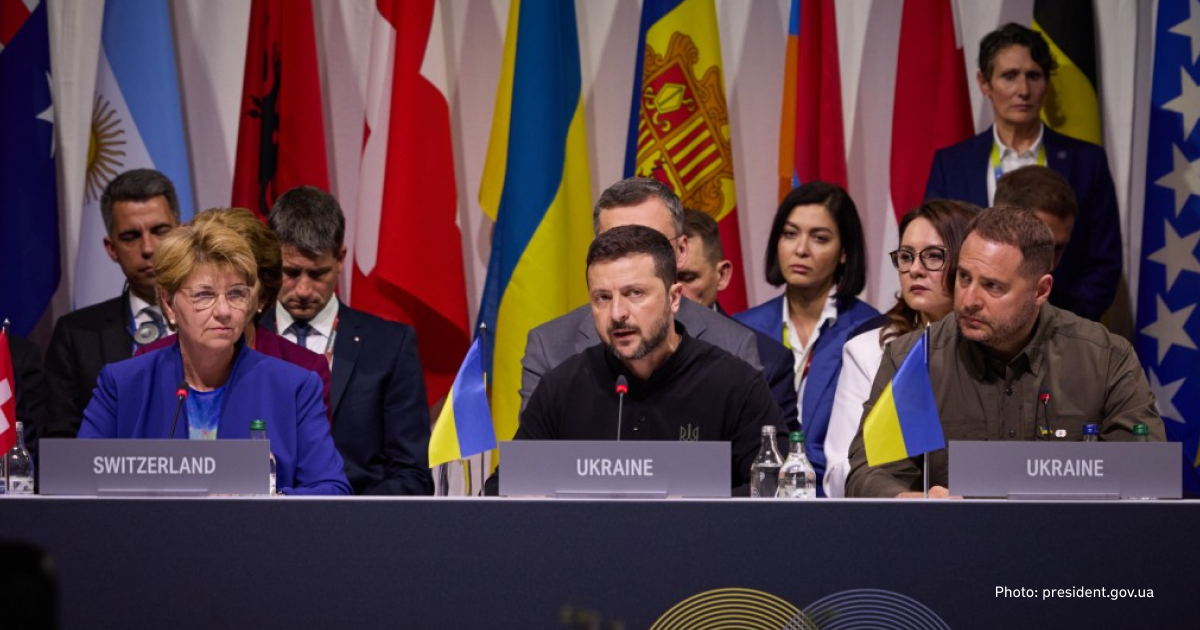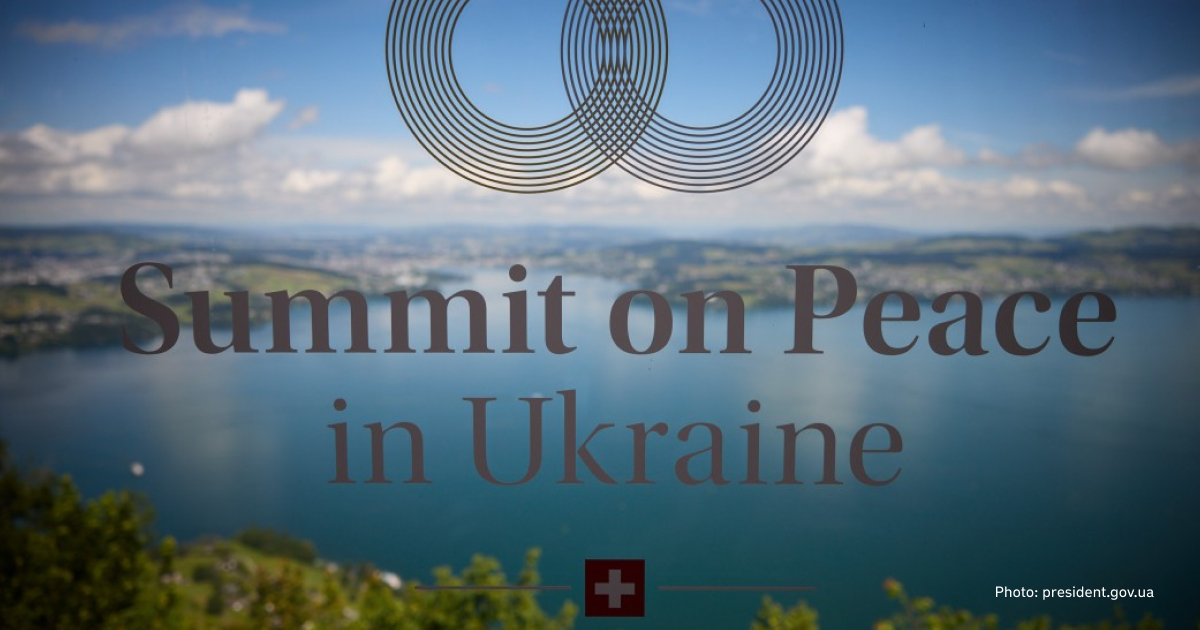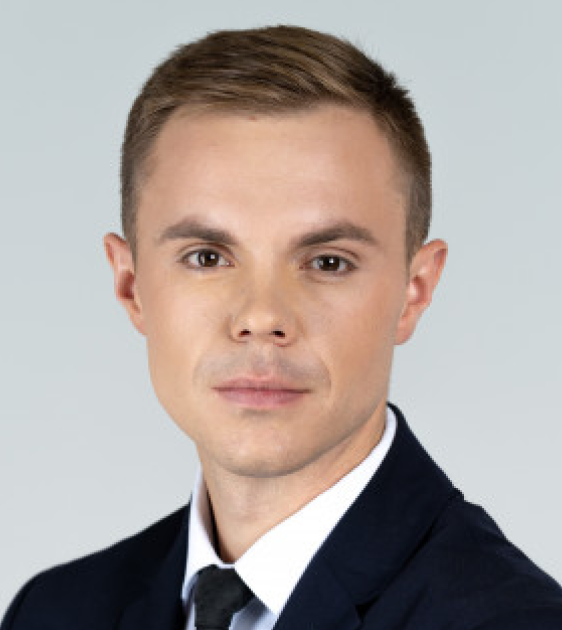How did Ukraine hold its first peace summit, and will Russia accept Ukraine's peace?

On June 15 and 16, Ukraine and Switzerland hosted the Global Peace Summit. The aim was to agree on the first three points of the peace formula developed by Ukraine for a "just end to the war". Ninety-two countries and eight international organisations attended the summit.
Svidomi explains what was agreed upon at the first peace summit in Switzerland and how Russia's reaction to the summit indicates its willingness to make peace with Ukraine.
What was the outcome of the peace summit?
Volodymyr Zelenskyy presented a formula for peace at the G20 summit in 2022. It is "a set of solutions that can be implemented to truly guarantee peace." The plan calls for radiation and nuclear safety, food security, energy security, the release of all prisoners and deportees, including war prisoners and children deported to Russia, restoring Ukraine’s territorial integrity, withdrawal of Russian troops and the cessation of hostilities, justice, the prevention of ecocide, prevention of an escalation confirmation of the war’s end.
In Switzerland, participants discussed the formula's first three points: nuclear security, food security, and the return of prisoners and deportees. Following two days of discussions and speeches, the participants agreed and signed a joint communiqué: an official report on negotiations between statesmen and public figures, delegations in international relations, and agreements and decisions reached. The communiqué does not oblige the signatories to implement it but rather states the position of these countries on these issues.
Seventy-eight countries signed the communiqué out of 92 participants. Armenia (the Collective Security Treaty Organization member — ed.), Bahrain, the Vatican City State, India, Indonesia, Columbia, Libya, Mexico, the United Arab Emirates, Saudi Arabia, Thailand, Brazil, and the Republic of South Africa (BRICS members — ed.) did not sign. Iraq and Jordan withdrew their signatures on June 17.

The signatories include Türkiye, Kenya, Kosovo and Serbia, Qatar, the Republic of Korea, Rwanda, and Switzerland.
Maksym Kostetskyi, head of the Centre for Policy Making, says that not all countries were able to sign the communiqué for technical reasons.
"They were not represented at the level of the state leadership in the government or the Ministry of Foreign Affairs and did not have the authority to sign such communiqués," he explains.
In a joint statement, the participants declared that the Zaporizhzhia nuclear power plant should "operate safely and securely under the full sovereign control of Ukraine". As part of food security, free access to the ports on the Black Sea and the Sea of Azov must be guaranteed, and attacks on civilian ports are "unacceptable".

The signatories also demand the release of all prisoners of war and the return of all deported Ukrainians to Ukraine.
Ukraine holds these summits to gather support from other countries and then offer this formula to Russia to end the war. This is how Volodymyr Zelenskyy explained the need for a peace summit back in 2023. Support for the return of the ZNPP to Ukrainian sovereignty, access to ports and the return of prisoners and deportees should show Russia that Ukraine is not alone in its demands but that there are other countries as well. Therefore, one of the summit's goals is consolidating support for Ukraine.
Maksym Kostetskyi, head of the Centre for Policy Making, believes the summit is primarily a diplomatic achievement for Ukraine.

"Ukraine is actively promoting its agenda, pursuing its formula for peace and engaging most of the world in discussing these issues, even though the direct aggressor, the Russian Federation, as well as its de facto ally, China, are actively opposing such events to make it impossible to hold them at all. The fact that Ukraine has organised the Peace Summit, with about 100 countries and international organisations attending, proves that Ukraine's subjectivity in global politics has grown significantly over the past three years and allows Ukraine to move towards ending the war,"
Maksym Kostetskyi explains the need for the summit and its success.
Ukraine wants to prepare and hold the next summit as soon as possible to discuss and consolidate further points of the peace formula.
"In a state of war, there is no time for long-term work. Moving towards peace means moving quickly. Preparations will take months, not years. When the peace plan is ready, and every step is worked out, the way will be open for the second peace summit and thus for the end of this war, for a just and lasting peace," Volodymyr Zelenskyy commented on the preparations for the next summit.
According to Foreign Minister Dmytro Kuleba, the second summit will discuss points directly related to ending the war between Ukraine and Russia.

Which countries participated in the Peace Summit and which did not?
Among the countries that took part in the summit were active supporters of Ukraine, such as Lithuania, the United Kingdom, the United States, Poland, Italy, Germany, Estonia, Finland, Sweden, etc., and countries that have a neutral position in the war or cooperate with both countries in economic relations.
The latter is Türkiye, which supports Ukraine's sovereignty and territorial integrity but continues to trade with Russia. During the summit, Türkiye reaffirmed its position and said, "Russia's participation is needed to achieve significant progress".
Saudi Arabia and Kenya also emphasised the need for Russia's participation in the peace summit. Saudi Foreign Minister Prince Faisal bin Farhan Al Saud said that credible negotiations would require "difficult compromise". Saudi Arabia did not sign a communiqué following the summit.
Argentina and India also attended the peace summit. Argentina's president, Javier Milei, said it was an opportunity for his country to rejoin the international community and express the need for peace between nations.

"On behalf of the Argentine people, I want to express our unlimited support for the people of Ukraine and our friend President Zelenskyy,"
said the president of Argentina in his speech at the summit.
Some countries and international organisations publicly refused to participate in the peace summit. IAEA Director General Rafael Grossi, the International Atomic Energy Agency, did not attend the summit to "prevent political considerations from mixing with our technical work".
China also refused to attend the peace summit. China is trying to promote its provisions for a peaceful settlement of the war between Ukraine and Russia. However, China does not call the attack on Ukraine a war but a’crisis’ and demands sanctions against Russia to be lifted.
In Singapore, Volodymyr Zelenskyy said, "Russia is using China and Chinese diplomats to influence countries and dissuade them from participating in the peace summit". China rejected the Ukrainian president's accusations.
Central Asian countries such as Qazaqstan, Türkmenistan, and Azerbaijan refused to participate in the peace summit. These countries still maintain close economic and diplomatic ties with Russia.
The absence of countries with strong ties to Russia and China influenced the text of the communiqué, says Kostetskyi. The text emphasised Ukraine's position on the issues raised at the summit.
"In this regard, some global powers are reluctant to sign such radical statements. Perhaps within a few days or weeks after the summit, we will see some countries join the signing of this communiqué," Kostetskyi concludes, summing up the possibility of other countries joining the summit.
Andriy Yermak, head of the President's Office, said that the communiqué was left open for signature by those countries that initially refused to attend the summit.

Russia's response to the summit
On June 14, the day before the summit, Russian President Vladimir Putin issued a statement on negotiations with Ukraine. He said that "Russia is ready to sit down at the negotiating table even tomorrow", but on the condition that "Ukraine refuses to join NATO" and "the Ukrainian Armed Forces withdraw from the Donetsk, Luhansk, Kherson and Zaporizhzhia regions". He called the peace summit "a continuation of bloodshed".
On June 15, the day of the summit, the New York Times published a draft treaty between Ukraine and Russia, which was developed in the spring of 2022, before the de-occupation of parts of the Kyiv, Chernihiv, and Sumy regions. Vladimir Putin emphasises that this treaty, which he refers to as the "Istanbul agreements", was indeed a peace plan to end the "special military operation" (as Russia calls the war against Ukraine — ed.).
Vladimir Putin also emphasises that he cannot negotiate with Volodymyr Zelenskyy because he is not a "legitimate" president, and "the parliament and the speaker should run the country". Svidomi explained why this is not the case and why Ukraine cannot hold elections under martial law, both constitutionally and in terms of real possibilities.

Ukraine's Foreign Ministry said that Vladimir Putin had tried to disrupt the Global Peace Summit with his statements but that his "ultimatums have been heard many times before", not just on the day before the summit.
"Ukraine never wanted this war, and like no other country in the world, Ukraine wants it to end. However, the efforts of one country are not enough to stop Russia from engaging in aggression. Participation of as many countries and international organisations as possible in the inaugural Global Peace Summit is crucial to make Russia abandon ultimatums and move to good faith negotiations to end the war rather than to propaganda statements under the guise of horrific missile attacks on Ukraine," the Ukrainian Foreign Ministry says in a statement.
However, after the summit, Dmytro Kuleba reported that Russia could be invited to the subsequent peace summits organised by Ukraine.
Maksym Kostetskyi believes that the first three points discussed at the summit were a starting point for creating a framework for withdrawal from Russian aggression.
"Most of the event participants are interested in starting some kind of communication with the Russian Federation. Ukraine has stated that there will be no direct talks with Russia. It will most likely take place through intermediaries again. No one can force the aggressor state to engage in peace talks if it does not want to. Greater pressure from the international community will help the aggressor state to gradually move away from its extreme positions and make concessions in the war. It is important that we maintain the framework and the agenda that allows us to promote Ukrainian interests, but also to proceed from the general support of this framework by as many UN member states as possible," Kostetskyi weighs on the need for partner countries to participate in the Peace Summit and other Ukrainian initiatives.
It remains to be seen whether Russia will be able to participate in peace summits, but it depends on Russia's decision and the position of Ukraine and its international partners.
Maksym Kostetskyi says at the following summits, everything will depend on Ukraine's position diplomatically and at the frontline.
"The territorial integrity of Ukraine cannot be compromised. Another issue is that a significant part of the participants may insist that the issue of territorial integrity should be interpreted from a longer perspective. This will depend, among other things, on the situation on the battlefield by the time such negotiations are held. I hope that, over time, the successful delivery of aid will allow stabilisation of the front line and conducting partial offensive operations. Then Ukraine will be able to talk to the aggressor state from a position of strength, and our ultimate goal is to de-occupy all the territories of Ukraine,"
Kostetskyi concludes.


